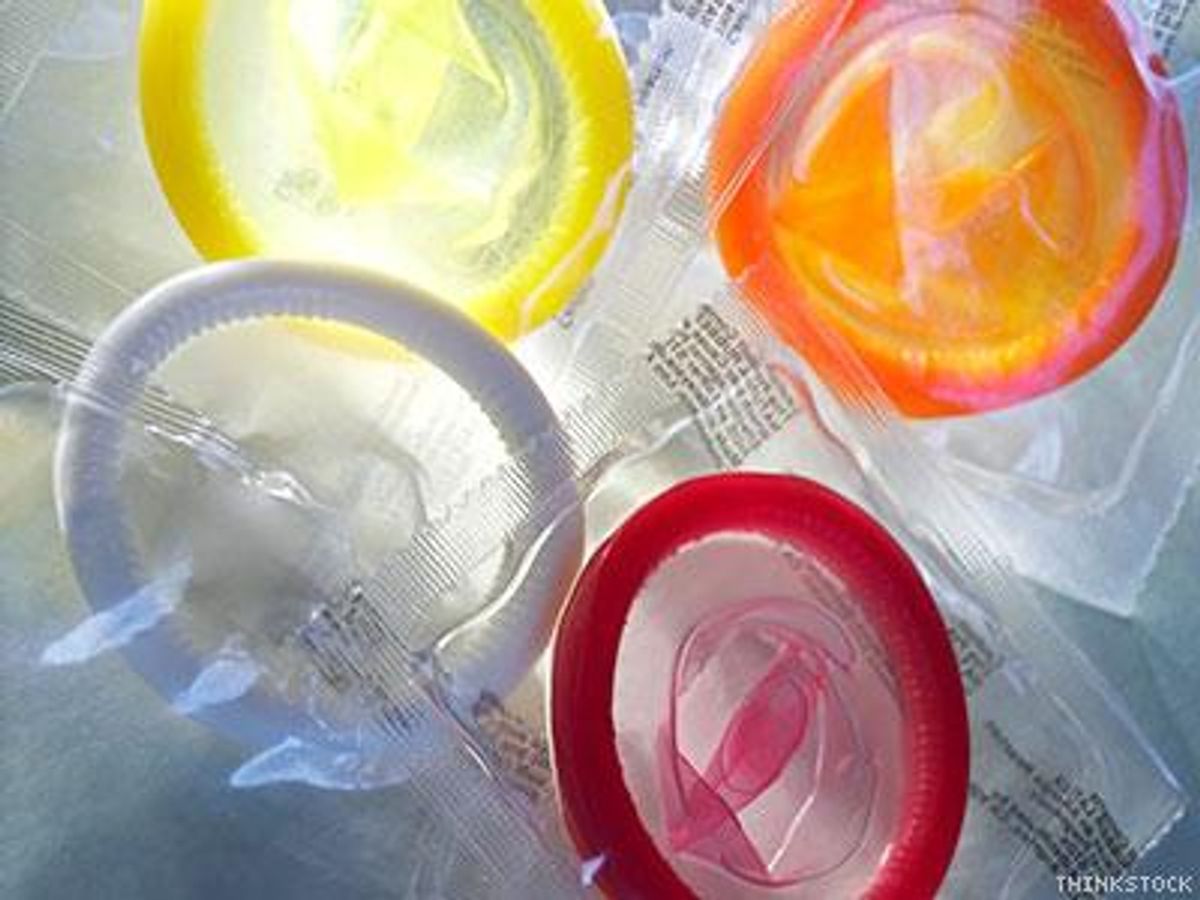Foreign-made condoms, X-ray machines, and other medical equipment may be next in the list of barred purchases in Russia, according to The Moscow Times.
The ban, which would prevent the Russian state from purchasing certain items from foreign makets, was proposed last week by the Industry and Trade Ministry as part of an ongoing trade war between the West and Russia which began over Russia's intervention in Ukraine last spring.
Aside frm condoms and X-ray machines, the ban would include ultrasound machines, defibrillators, incubators, bandages, medical masks, prosthetics, crutches, and orthopedic footwear. According to RIA Novosti — the Russian-language news agency — right now 80 percent of Russia's medical equipment is made up of foreign imports.
The ban would not prevent shops from selling foreign-condoms but it would prevent the state from buying and distributing them, as well as raise the price of foreign brand condoms. Imports from Eurasian Economic Union countries like Belarus, Kazakhstan, and Armenia, would not be barred.
The ban on foreign-made condoms raises concerns about Russia's fight to control the spread of HIV, as it's one of the few places where infection rates are still increasing rapidly. New infections are most common among injection drug users, though advocates say antigay stigma may prevent men who have sex with men from being totally honest in disclosing how they were infected.
While Russia has stepped up in providing medication to positive patients, Dr. Vadim Pokrovsky, head of the Russian Federal AIDS Centre, said more needs to be done to prevent infections, including public health campaigns and rolling back restrictions on sex education in schools. Pokrovsky told The Guardian in May that he expected the number of HIV-positive people to reach three million within five years, or roughly two percent of the total population.
Additionally, methadone clinics, which play a critical role in reducing the number of HIV infections among drug users, are banned in Russia.
In response to criticism, former chief sanitary inspector and current government advisor Dr. Gennady Onischenko told RIA Novosti condoms "have nothing to do with health" and that banning the condoms "will simply make one more disciplined, more strict, and discriminating in choosing partners, and maybe will do a favor to our society in respect to solving demographic problems."
Pokrovsky argued that there is no direct link between imported condom sales and infection rates because the cost of imported condoms are high, telling Interfax that if given the choice between buying a condom and buying a beer, the average trade school student would choose the beer.
While there are cheaper, less popular condom options available, the quality of them is questionable and generally not considered on par with foreign brands.
"Of course, there is a question of quality, and in this regard a problem certainly exists," Pokrovsky told Interfax.











































































